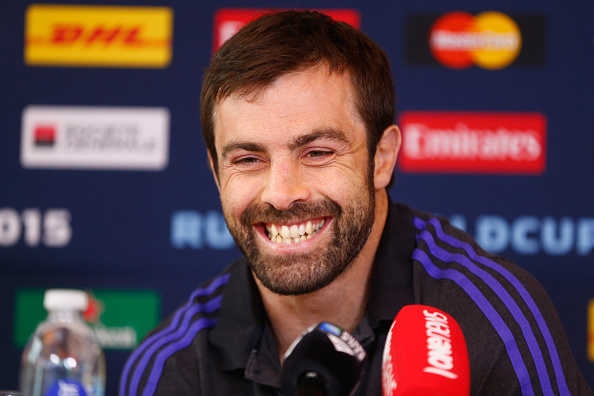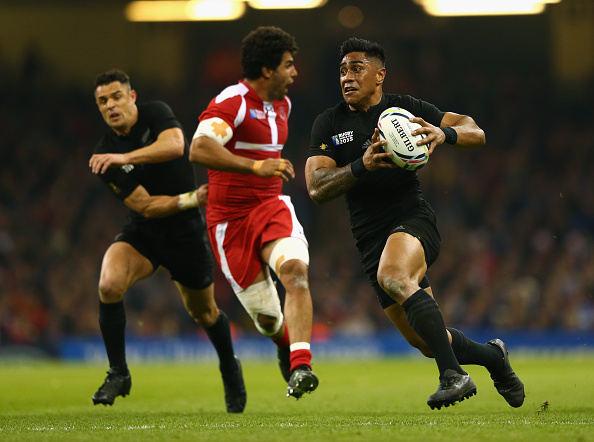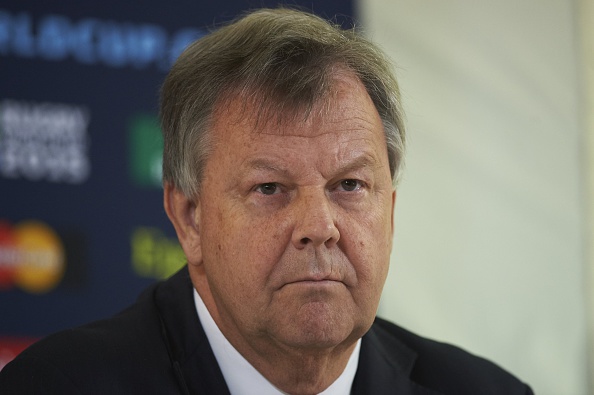With the heavyweight clash between Australia and New Zealand approaching, we pay homage to one of the All blacks' all time greats
By Will Macpherson
This weekend we bid farewell to a raft of once-in-a-generation All Blacks, the backbone of the world’s most successful team. Indeed, the first – the only one to have scored in a World Cup Final – Tony Woodcok, has gone, hamstring strained, to little fanfare. Keven Mealamu, Richie McCaw, Dan Carter, Ma’a Nonu and Conrad Smith exit stage left after the Final too. That’s six men – half gone for good, half off to France – with legitimate claims to make the All Blacks greatest XV ever. Even for a nation with a talent pool as rich, deep and envy-inducing as New Zealand, will take some replacing.
It’s, Smith, the last of this illustrious list – and the only one who will retire without a century of caps – who will arguably be the most missed. Sure, the explosive Malakai Fekitoa, 23 and 13 caps deep already, will come in for some regular action as a Test rugby 13. He’ll bring more attacking edge – at least he’ll hit the line at greater speed – than 2015-vintage Smith, but the All Blacks will lose plenty besides: defensive organiser, line-straightener, support runner, offloader, nerve for a disaster, wily noggin.
Talking to Smith, whether one-on-one or in a press conference, gives an ounce of insight into what New Zealand will miss. He is one of those rare sportsmen who a journalist speaks to and has that sneaking suspicion that the interviewee could make a better fist of the interviewer’s job than the interviewer himself. If only – by the way – I could play outside-centre like him. Each answer is considered, no word wasted, and Smith is platitude-averse – not so much telling it as it is, but possessing a clarity of thought and understanding of his subject that means cliché is redundant and honesty easy. That law degree came in handy, alright.
There are two sportsmen Smith reminds me of. The first is as a result of the title of an autobiography – footballer Dennis Bergkamp’s “Stillness and Speed”. At 34, pace – proper, searing pace – has not been a part of Smith’s make-up for some years, but the gallop is still there: like Bergkamp, things seem to happen in slow motion, his speed of thought allowing him to be ahead of the game, hitting those superb lines, foreseeing where opposition attackers are headed and what they’ll do, then making the tackle. Hell, he even makes tackling and jackling – at times he’s felt like an additional back-row, so strong were both those skills – look silky, effortless and graceful. Size isn’t everything, brains are.
The other is his compatriot, the cricketer Daniel Vettori, another long-serving, oft-unheralded, utterly adaptable sportsman who got through leg work that helped more glamorous sorts thrive. Both, unquestionably, were the brains of the operation in their respective black-clad national teams, and carry an appropriately bookish demeanour – softly-spoken and ever-so-slightly nerdy. The comparison is helped, too, by the fact that both have spent much of their career impeccably facially hirsute, graduating from five o’clock shadows to the sort of bushy brown beards donned by vegan Wellington baristas. There’s lots to love here.
Smith’s legacy will be indelibly intertwined with Ma’a Nonu’s, and what a pairing they have been. Saturday will be their 62nd Test together (they’ve also played more than 50 games of Super Rugby together). It’s no coincidence that just five of those have been lost. Unquestionably, Nonu’s development from bolshy, battering ram but reluctant passer in the 13 channel or on the wing to the globe’s most rounded inside centre, complete with accomplished – at times sumptuous – kicking and passing games has been helped by partnering Smith so many times. They leave a gaping hole, one that – cliché klaxon – rugby fans probably won’t be able to fully appreciate until it has to be filled.
It is the sheer paucity of bad games (that day at Twickenham in 2012 is the only one that immediately springs to mind and, surprise, surprise, the All Blacks lost) that is likely to truly stand the test of time with Smith. It is his constant excellence – with Nonu, of course – that has allowed Steve Hansen to experiment with his fly-halves, wings and his full-backs between World Cups – and indeed in the middle of big games – and to try different things: there’s a constant: the defensive organiser and decision-maker.
Smith is off to Pau in France, for the experiene and no doubt to top up the bank balance. Rightly so. Hurricanes and New Zealand will miss him dearly. But here’s a thought: as the RFU begin their fittingly shambolic review into a chastening World Cup, why not get out that bulging cheque book and get Smith on board? Not yet as a coach, but as an adviser. The man has banked more about backs play – in defence and offence – than any current Englishman at this World Cup. At least that way Test rugby would not have to say cheerio for good.









